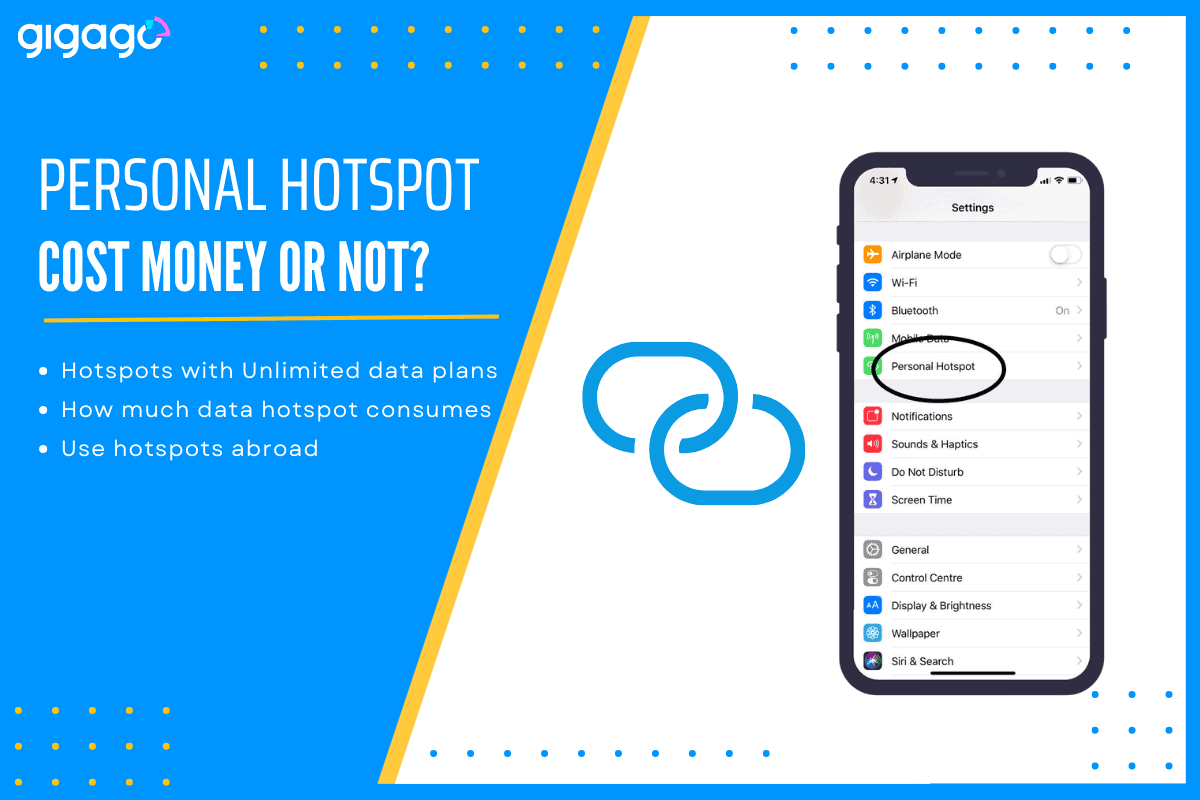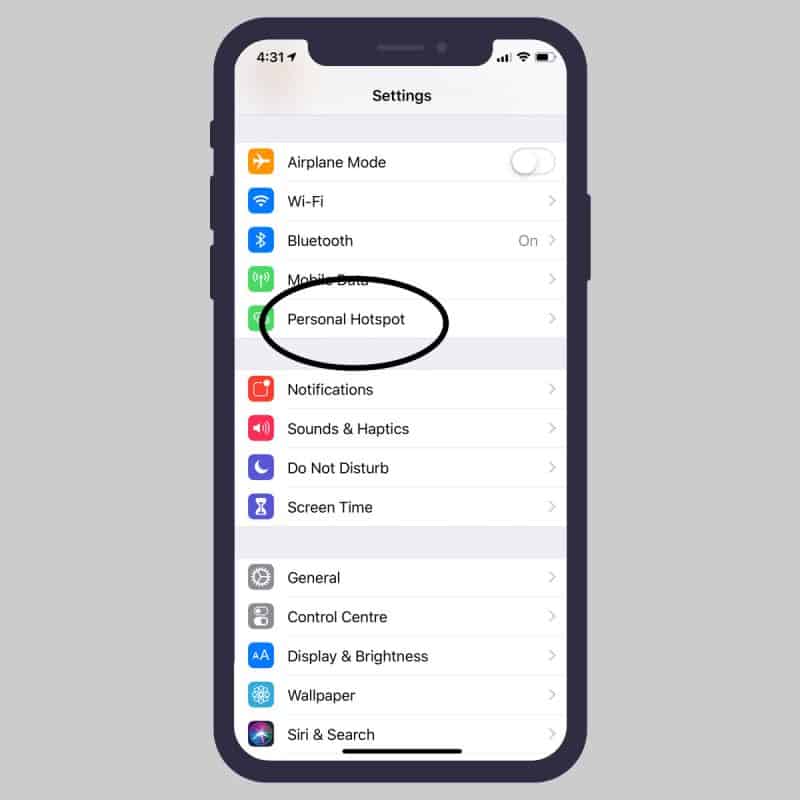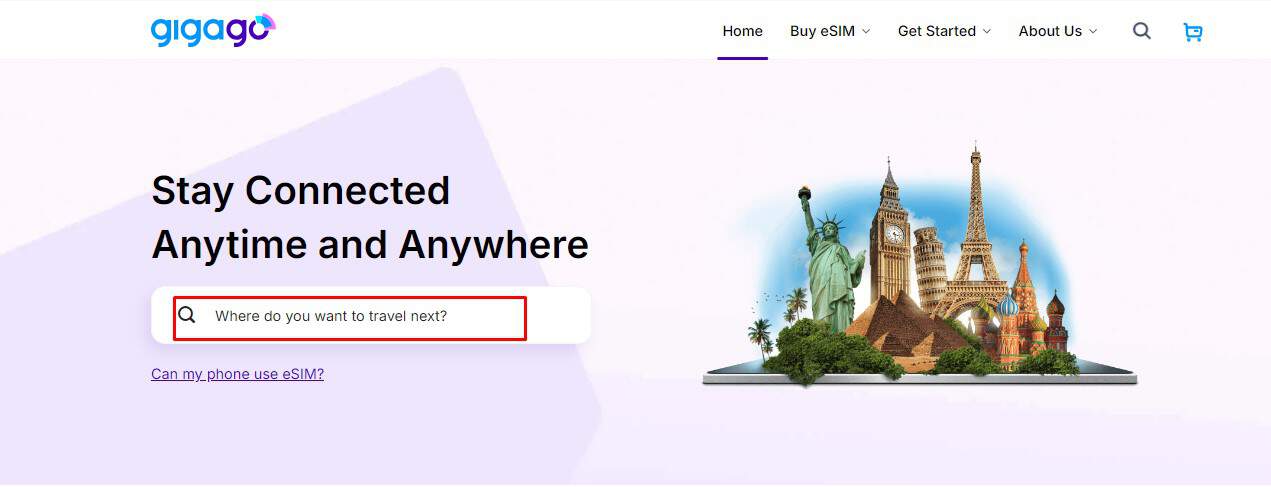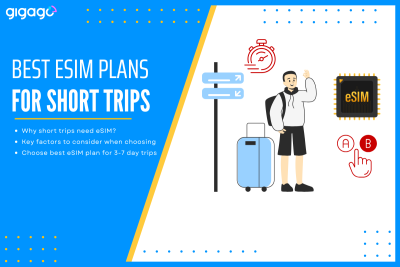A Beijing layover is a great chance to explore, but China’s “Great Firewall” makes staying connected tricky. Without the right plan, you’ll likely find blocked access to essential apps like Google Maps, WhatsApp, and even your banking tools. Whether you have a few hours or a full day, choosing the right connectivity option is key. […]
Does personal hotspot cost money?
Find out whether or not personal hotspot costs money, especially when traveling internationally.
Personal hotspot can be a convenient way to get multiple devices online, but it is important to understand the potential costs involved. While some plans include hotspot cellular data or offer it at a fixed rate, others may charge per amount used or incur roaming charges while traveling. Understanding your specific plan details is crucial to avoid unexpected bills.
This article will answer the question “Does personal hotspot cost money?” and suggest cost-effective alternatives for tourists going abroad.

In this article
I. Does personal hotspot cost money?
Using the personal hotspot feature on your phone itself does not directly cost any money. But, if you use a limited data plan and use it up, your mobile data plan will either stop, be throttled, or you will be charged for the overage data, which will depend on your mobile carrier. This often depends on various factors, primarily your mobile carrier and your specific data plan.
Are personal hotspots free with unlimited data plans?
The answer depends on your specific carrier and plan details. Having an unlimited data plan does not automatically guarantee unlimited hotspot usage. In fact, tethering can use a lot of data very quickly, which can impact network performance.
Here are some possible cases:
- Tethering fees: Some carriers may still charge additional fees for hotspot usage, even on unlimited plans.
- Data usage restrictions: Some carriers impose restrictions, such as limiting the number of devices that can connect simultaneously or blocking specific types of traffic (e.g., video streaming) through the personal hotspot.
- High-speed data caps: Many unlimited data plans include a high-speed hotspot data allowance per month (e.g., 10GB, 20GB). Once you use more than this data allowance, your hotspot speed will be throttled (reduced) until your next billing cycle. This practice is known as a “fair usage policy.”
Therefore, you should always check with your carrier to avoid unexpected charges.
► Read more steps to set up a mobile hotspot on Android phones.

II. How much data do hotspots consume?
The amount of data that hotspots consume varies widely, but you can estimate usage based on typical online activities. Here is a table showing common activities and their average data consumption:
| Activities | Data consumed (per hour) |
| Web browsing | 50 – 150 MB |
| Sending emails | < 1 MB |
| Music streaming | 5 – 150 MB (varied by quality) |
| Video streaming SD | 300 – 700 MB |
| Video streaming HD | 1 – 3 GB |
| Video streaming 4K | 5 – 10 GB, even more |
| Online gaming | 30 – 300 MB (varied by game) |
| Software update | Hundreds of MBs – several GB |
The hotspot data consumption depends on several factors, such as:
- Types of activities: Streaming, video calling consume the most data, web browsing, email, social media use moderate amounts of data, while messaging or reading articles use minimal data.
- Number of devices connected: The more devices connected to your hotspot and use data, the faster data consumption will be.
- Duration of use: Longer connection times will lead to higher data usage.
- Data speeds: 5G hotspots are faster than 4G hotspots, meaning that you can burn through your data allowance much faster if you are not careful.
- Type of plans: Do not be fooled by the word “unlimited data”. As mentioned earlier, some unlimited plans offer genuinely unlimited high-speed hotspot data, while others have hidden caps or throttle speeds after a certain threshold.
III. Using hotspot abroad – Does it cost more?
When you travel abroad, using your personal hotspot with your home country’s SIM card often seems like a convenient option. However, this involves international roaming, which can be very expensive and is generally NOT recommended.
Here is why:
- Data costs add up quickly: While your domestic plan may offer unlimited data, it is likely charges a daily rate (e.g., $10) for international data usage. Even with a seemingly unlimited data allowance, costs can accumulate rapidly, especially with multiple mobile devices connected.
- Roaming fees can be high: Roaming fees are different depending on the carrier and the country you visit, but in general, the rates cost about:
- Voice calls: $1.50 or more per minute
- Text messages: 50 cents per SMS
- Data: $5 – $10 per MB of mobile data
- Hotspot use amplifies costs: When you enable hotspots while roaming, any data used by connected devices will be counted as roaming data. This can lead to high bills, especially if you’re using data-intensive activities like streaming or downloading.
So, before enabling international tethering, carefully consider your data usage abroad and explore alternative options to avoid high roaming charges.
IV. Alternative to staying connected abroad
When traveling overseas, you have better options than expensive roaming to stay connected: international SIM cards or eSIMs.
If your phone is carrier-unlocked and eSIM compatible, eSIMs are generally the most convenient and cost-effective option. They can be bought, installed and activated online before departure, eliminating the need to use physical SIM cards.
If your phone does not support eSIM, physical international SIM cards are still a good alternative to hotspot roaming.
Upon considering buying eSIMs, companies like Gigago offer a variety of eSIM plans that include hotspot or tethering features, making it easy to share your connection with other devices.

Simply select the country you are visiting, choose from available eSIM plans, check the plan’s description to make sure it has hotspot/tethering functionality, and set up eSIM hotspot for your trip.
V. FAQs
Why does using hotspots cost money?
The hotspot/tethering functionality itself does not cost money. But, the hotspot costs often incur based on the data you use and the carrier. Going over your data limit gets expensive fast. You should check with your carrier for more details.
Can I use hotspots for free?
Some carriers offer hotspots free while others may charge additional fees. Depending on the carrier and data plan, the fee can be varied. If you travel abroad, hotspots will be charged as roaming consumption.
Is hotspot the same as WiFi?
No, hotspot is not the same as WiFi, but related. You connect to a hotspot using WiFi. WiFi is a technology that allows devices to connect to the Internet wiselessly. It is like a language that devices use to talk to each other. A hotspot is a physical device or location that creates a WiFi network. It is like a WiFi transmitter.
Do all eSIMs support hotspot?
No, not all eSIM plans support hotspot / tethering feature. You should check the description of the eSIM plan before buying.





